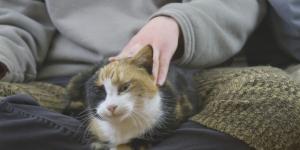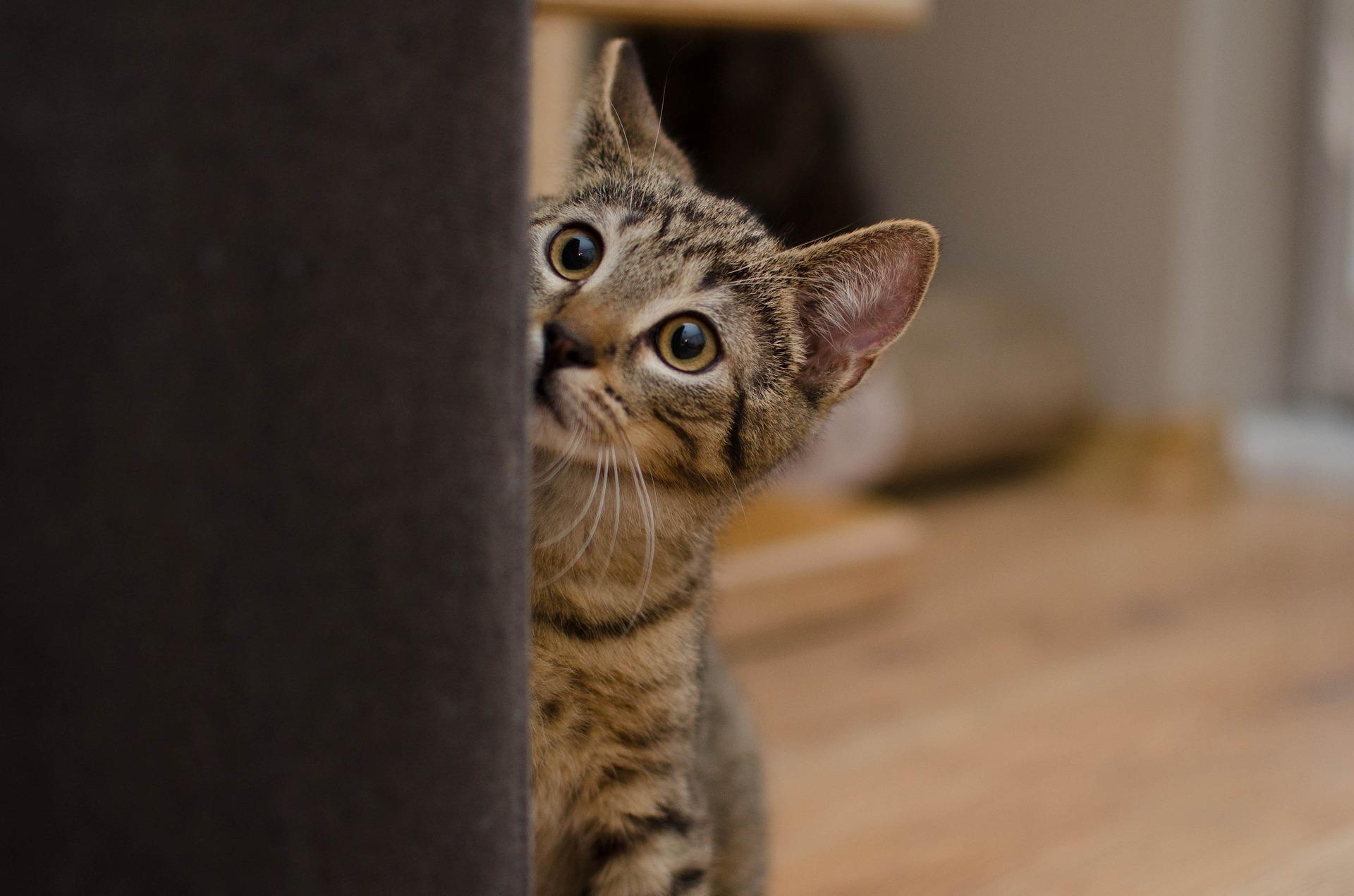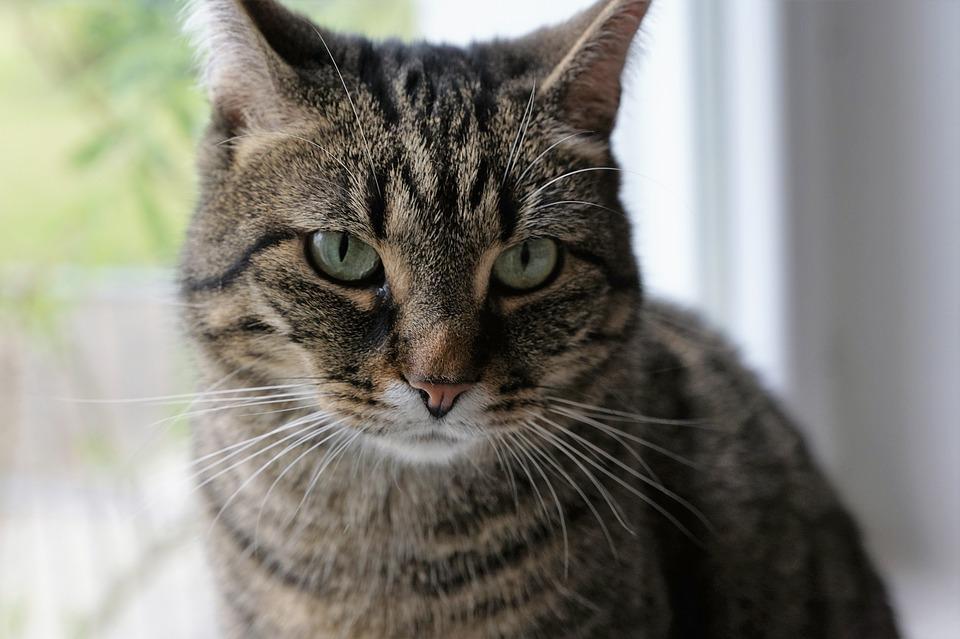My Cat Doesn't Like to Be Pet



See files for Cats
Especially for first-time owners, many cat guardians might find their cat may resist being touched. A healthy bond between human and cat should involve certain physical interaction, but this doesn't mean a cat will want to be pet all the time. To consider them the same as a small dog, which generally prefer being petted more than cats, is a rookie mistake. However, even long-term cat guardians can make this mistake too often. If we want to show affection, we can't force it on them.
This AnimalWised article looks at the reasons why your cat doesn't like to be pet. By knowing these reasons, we will be able to prevent them from happening as well as strengthening our bond. We are also likely to improve the overall well-being of the cat.
Why a cat doesn't want to be pet
Before we go into detail about the reasons why a cat doesn't want to be petted, we bring you a summary of why cats don't want to be touched. They include:
- Petting at the wrong moment
- Being petted in the wrong place
- Emotional trauma
- They are in pain
- Change in their personality
- Tips to help a cat enjoy being petted
Now we look at petting cats in general, as well as look deeper at the reasons your cat doesn't want to be pet.
Do cats like to be petted?
We need to remember that a cat is not the same as a dog. While there are many instances when a cat will want to be petted and some will enjoy this practice more than others. The reasons for this are many and have to do with the cat's socialization, breed, history and individual character traits.
Generally, dogs will tolerate physical manipulation more than cats, but there are exceptions, of course. An obvious demonstration of this difference can be seen with children and animals. Small dogs are often much more tolerant of petting and manipulation from babies and children. Cats more often than not will get scared, swat the child and/or run away.
This doesn't mean cats don't like to be pet or to have their fur stroked under the right circumstances. What it does suggest is that cats will dictate how much or little they will allow to be touched. Dog are taught obedience behavior and generally enjoy being subservient to their human companion. Cats are much more aloof and can be very selective over how and when they like to be touched.
For the above reasons, we need to know who is boss. The cat will mark us as well as different objects within the home. They do this by rubbing their head and other body parts against our legs or practically anything in their environment. The reason for this is they are marking us as their territory. A popular axiom claims that ‘dogs have owners and cats have employees’. They decide when they want to be manipulated.
Of course, this will depend on the individual cat. To know whether they want to be touched, we need to read their body language and facial expressions. If a cat's ears ears are still and their eyes look heavy, they are probably relaxed. If they are alert and their fur is bristling, they are defensive. To know more, you can take a look at our article on understanding cat body language.
So know we know whether cats like to be petted in general, let's look situations where a cat may not want to be touched.
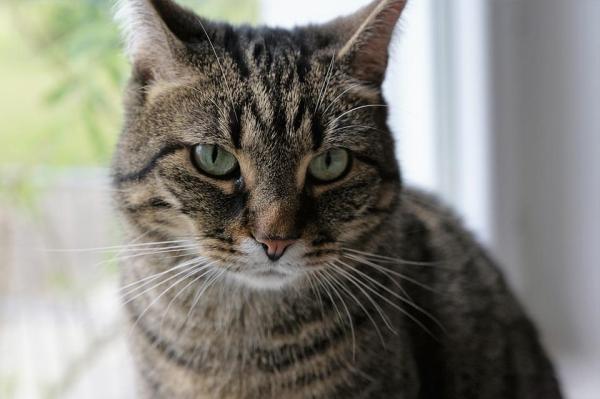
Petting at the wrong moment
While it may seem counterintuitive, petting a cat when they are feeling stressed is not likely a good idea. While we may only want to comfort them, this can cause even more anxiety. They may feel threatened by you, even if you are not the original stimuli initiating the stress.
One problem is that we often choose the wrong moment to pet them. If we see the cat staring out the window at some birds and their tail is swishing hard, it is possible they are frustrated. Petting them in this moment can set them off. If there are fireworks outside and they spook the cat, petting them can make them feel even more under threat.
Changes to a cat's routine can also mean they do not want to be pet. If you bring a new family member into the home, whether human or animal, the cat may need some time to adjust. Petting may be off limits until this happens. Other changes such as feeding them at a different time, changing their type of food, moving home and others can lead to not wanting to be pet.
Once the moments of stress are over, the cat should again allow themselves to be petted. However, chronic stress will need a feline ethologist to help the cat with their behavioral problems.
Being petted in the wrong place
Once you have determined the cat is OK with being touched, you will need to find out where you do so. There are parts of their body where cats will tolerate being touched more than others. They are:
- Neck
- Behind the ears
- Under the chin
- Part of the neck
- Base of their tail
If you start slowly and pet the cat in these areas, you should find that the cat will tell you whether or not they enjoy being pet there. One common mistake is when the cat shows their belly to you. It may seem like the cat wants to be petted there, but this is not the case. While exposing their belly might indicate they feel comfortable near you, they usually find this spot feeling too vulnerable.
It is possible you might find your cat doesn't like being touched on their back or some other specific area. This is less likely, as cats generally tolerate being touched on their back. We should look at some other reasons a cat doesn't like being pet there if this is the case.
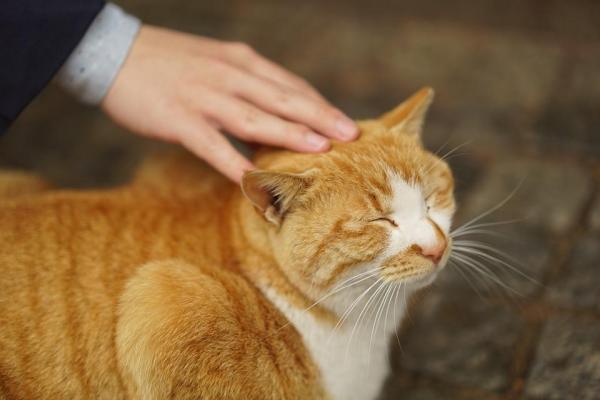
Emotional trauma
While we highly recommend adopting a cat from a shelter, it is true that doing so can be problematic. Many cats find their way into the shelter system because they have been abandoned or become lost. This process can be very stressful for cats and it results in the cat being distrustful of humans.
Similarly, the socialization of kittens is vital for their well-being as an adult cat. If they are taken away form their mother too soon or are not allowed to socialize with other animals or humans, it is more likely they will not enjoy being touched. This does not mean the cat will not adapt. It just means they may need some more support and condition to feel safe around us.
Mental trauma can also make a cat scared of humans and not want to be petted. In these instances, the cat can even be very aggressive since they associated us with danger and pain. Helping a cat to accept human interaction in these cases will usually require the services of a professional who can help make them feel secure around us.
They are in pain
When we have been able to pet our cat without problem before, but suddenly they don't want to be touched, we need to consider a possible physical problem. Pain is a symptom of many diseases and medical problems in cats. If they have an area which is painful and we try to touch them there, the cat may try to escape us.
Generally, the cat's pain can come from an internal or external problem. While there are many possible reasons the cat is in pain, some of the most common include:
- Physical trauma resulting in bruising or wounds
- Osteoarthritis
- Burns
- Side effects from a medical treatment
It is important we take the cat to a veterinarian if we suspect the cat is in pain. Outer wounds or contusions can indicate certain problems, but they may be a sign of something deeper under the skin. It is possible the cat has an infection, obstruction or some other problem we cannot observe normally. If we suspect the cat is suffering, we can look at this article on signs of pain in cats to gain a better understanding of what might be going on.
Change in their personality
As we have stated in this article, every cat is an individual. Many of the reasons they do not like being pet are due to a specific situation, whether it is a moment of stress or illness. Some are due to longstanding issues such as past trauma. For this reason, some cats will be happy to be petted frequently, others will be very standoffish.
If the cat suddenly stops wanting to be pet, but there is nothing physically wrong with them, it is possible there has been an issue which has leads to a change in their personality. Maybe they have been traumatized since being in your family. This could come from many things. If they are an outdoor cat, another rival cat in the area might be bullying them. This causes them to be stressed and reject petting.
When the cat lives in a family with children, it is common for young children to not yet know their boundaries. They may over-manipulate the cat which results in the cat not wanting to be touched by anyone.
Kittens may suddenly stop wanting to be petted once they get to a certain age. This is because their development will lead to changes in hormone production. These hormones can make the cat become aggressive or stop wanting to be touched. For this reason, and many others, veterinarians recommend sterilization.
On the other end of the spectrum, elderly cats can have sudden changes in personality which lead to not wanting to be petted. Feline dementia can lead to serious problems and result in the cat's personality changing significantly. For this reason, we need to be extra careful with older cats and any changes to their well-being.
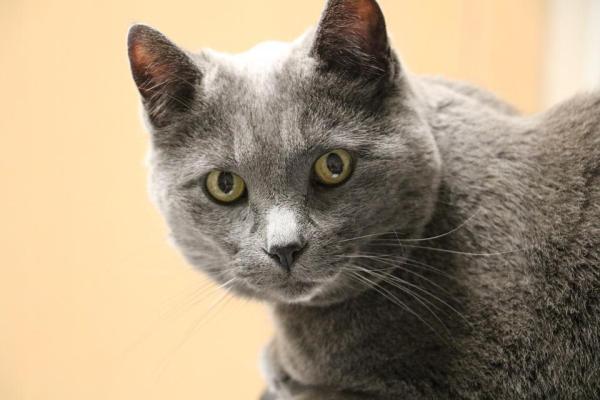
Tips to help a cat enjoy being petted
In order for your cat to enjoy being petted, we need to ensure the reasons they do not enjoy being petted are removed from their living situation. This means:
- Ensuring their health through preventive vaccinations and deworming schedules. Regular veterinary checkups are also important to spot problems early.
- Do not have stressors in the home which can cause the cat to be insecure.
- Make changes gradually and do not disrupt their routine unless completely necessary.
- Feed them well and establish a feeding schedule.
- Use positive reinforcement when you want to encourage being petted.
- Do not scold or hit them under any circumstances.
- Start off petting them in the common places they enjoy being touched.
- Let them come to you and start slow.
Taking the cat to a veterinarian and a feline ethologist are the best way to have a cat accept you petting them. They will assess the cat and recommend specific techniques to encourage being touched. Unfortunately, not all cats will accept being petted. Some will be too distrustful of humans or they simply do not enjoy this kind of interaction. In these cases, you may have to accept a more distant relationship with the cat.
If you want to read similar articles to My Cat Doesn't Like to Be Pet, we recommend you visit our Behavioral problems category.




